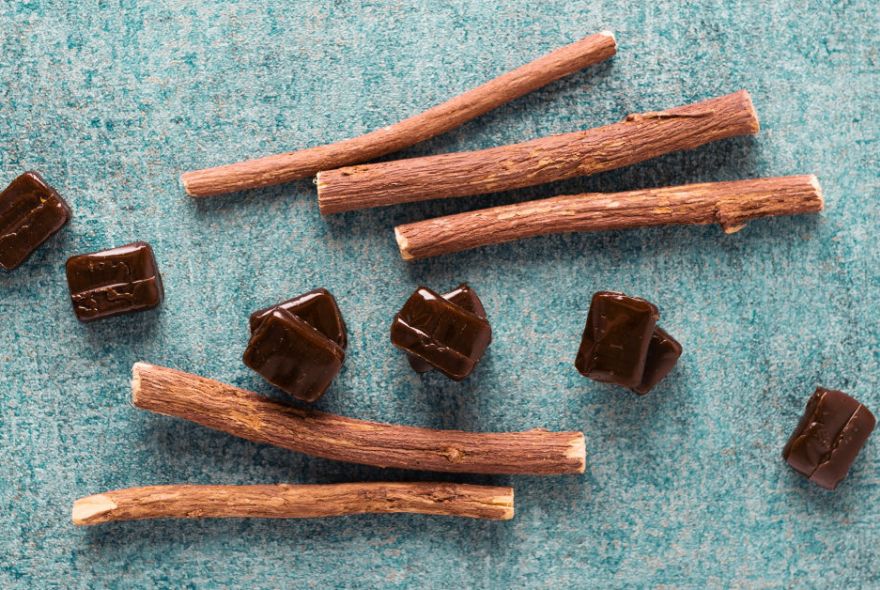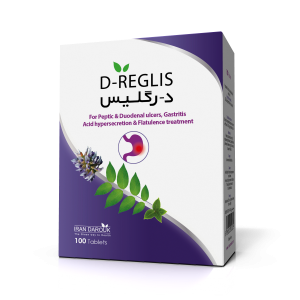The benefit of Liquorice
Overview
You may think of liquorice first and foremost as a sweet, in ‘allsorts’ of shapes and sizes, but it’s also a herbal medicine that’s been used traditionally for thousands of years. In fact, some liquorice-flavour sweets (mainly those in America) don’t actually contain any extract from the liquorice plant at all.
What is liquorice and what does it do?
Liquorice comes from the root of a plant called glycyrrhiza glabra. The root extract has a sweet flavour, and contains over 300 different active compounds. Studies show that liquorice may be effective for a number of conditions, including indigestion, hot flushes and low blood pressure.
Benefits of liquorice
What does liquorice do in the body?
Liquorice is thought to have antimicrobial, anti-inflammatory and antiviral properties. So, is liquorice good for you?
Research shows it may be helpful for a number of conditions, such as:
Digestive issues – a 2011 study, published in Evidence-Based Complementary and Alternative Medicine, looked at people with indigestion taking 75mg liquorice root extract twice a day for 30 days. After two weeks, patients said many of their symptoms had significantly improved, including upper abdominal fullness, bloating, regurgitation and loss of appetite.
Liquorice could also help with stomach problems related to the H.pylori bacteria, which causes stomach ulcers. A 2016 study published in The Brazilian Journal of Infectious Diseases found that adding liquorice extract to a conventional medication for H.pylori could help eradicate the bacteria more effectively.
A sore throat – liquorice has traditionally been used to soothe a sore throat, and now there’s some evidence to back this up. In a small 2016 Egyptian study, scientists gave either liquorice or a conventional medication gargle to people before an operation. After a procedure, when the breathing tube is removed, many patients can experience a post-operative sore throat. But the results of this study showed the liquorice gargle was just as effective as the conventional gargle.
Dental health problems – laboratory research has shown liquorice has the potential to kill bacteria linked with dental decay, while a 2008 study by the University of Washington found a liquorice-infused patch placed in the mouth could soothe mouth ulcers.
Menopausal hot flushes – in a 2012 study published in the Iranian Journal of Pharmacological Research, researchers found menopausal women with hot flushes who took 330mg of liquorice root extract three times a day, reported a reduction in the frequency and severity of their flushes.
Skin conditions – a 2010 study by Shahid Beheshti University, Iran, found an extract of the leaves and root helped fight skin infections
Dosage
How much liquorice is safe to take?
There are currently no guidelines for safe intake levels of liquorice, but both the World Health Organisation and the European Commission Scientific Committee on Food recommend no more than 100mg a day of glycyrrhizic acid – a potentially toxic compound found in liquorice – a day for the average adult.
Too much liquorice can cause a drop in potassium levels in your body, which may lead to high blood pressure. If you have a history of heart problems or high blood pressure, speak to your GP if you’re thinking of trying a liquorice supplement. And always talk to your doctor if you’re on any medication, as liquorice can interact with some drugs such as warfarin or hormone replacement therapy.
Avoid taking a liquorice supplement during pregnancy as it can harm an unborn baby’s brain. Experts don’t know the safe levels of liquorice for breast-feeding women or children, so it’s always best to speak to your GP or a qualified medical herbalist before taking supplements.
Side-effects
What are the side-effects of taking liquorice?
Side-effects of low-potassium levels can include lethargy and abnormal heart rhythms. It’s thought liquorice’s side-effects are caused by the glycyrrhizic acid, but it is possible to buy deglycyrrhizinated liquorice (DGL), which may help prevent these issues.
مقالات مرتبط
مقاله ای مرتبط با محصول یافت نشد.
ویدئو مرتبط
مقاله ای مرتبط با محصول یافت نشد.



Comments
Add new comment